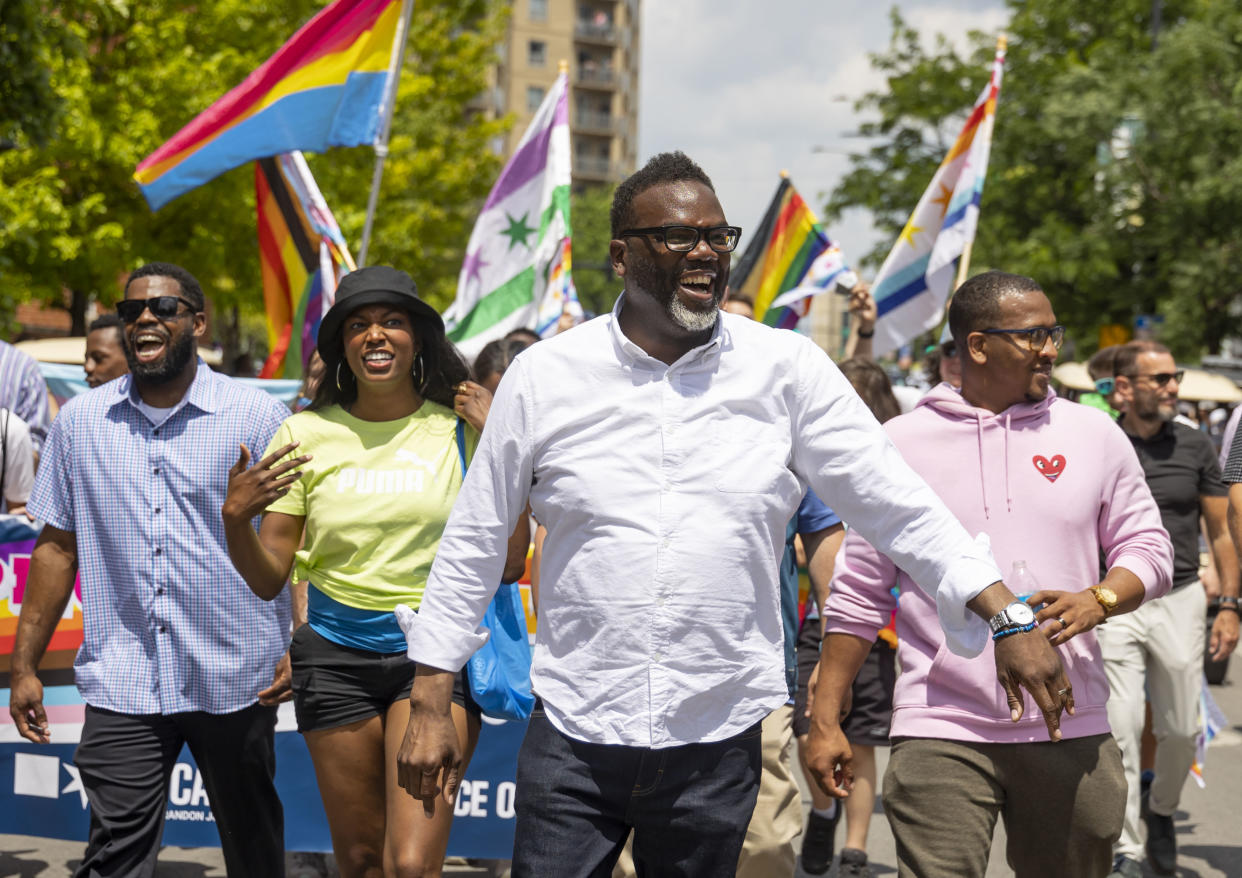LGBTQ+ community members call on Mayor Brandon Johnson to rescind plan to scale back Pride Parade

Organizers of the annual Chicago Pride Parade and allied groups are calling on Mayor Brandon Johnson to rescind the city’s plan to downsize the event this June.
The city last month cited “safety and logistical concerns” when it said this year’s parade would be limited to 125 groups, a decrease of more than a third from last year. The start time for the parade, set for June 30, was also dialed back to 11 a.m. from noon, as first reported by The Windy City Times.
Jin-Soo Huh, chair of the Johnson’s Advisory Council on LGBTQ+ Affairs, said the council was not consulted or told in advance about the decision. He said city officials subsequently cited an ordinance that prohibits parades from lasting more than two hours and 15 minutes, “except that where a traditional parade consistently has lasted longer and the commissioner determines that there is no traffic safety or undue congestion problem in continuing to allow the longer time period.”
“The Pride Parade, of course, is a traditional parade — it’s been around for a long time, and this hasn’t ever been enforced,” Huh said in an interview. “And so that was the thing that really surprised us: like, if you’re going to enforce it, let us know.”
Chicago’s Pride Parade has been coordinated by the same organization, PRIDEChicago, for over 50 years to commemorate the 1969 Stonewall uprising in New York City.
Huh said the reasons the city gave for limiting the scale of the parade included the need to provide Chicago police officers with more time to change shifts and to allow them to adequately patrol both the parade and manage the crowd that lingers after the event ends.
While Huh said he understands the challenges regarding police staffing and ensuring safety, he said he remains unsure why the city chose to implement a new policy this year. He also questioned if the number of participants in other major parades, such as the St. Patrick’s Day Parade and the Bud Billiken Parade, will be similarly downsized moving forward.
“This felt very targeted,” Huh said. “And I think that’s our confusion; it’s like, why now? Why so abruptly, and not involve anyone in the decision? Cause I think this is something that caught basically everyone in the LGBTQ community by surprise. So, how do we make sure that these decisions are made with us at the table?”
Members of the mayor’s advisory council, parade organizers and supporting organizations including Equality Illinois asked the city to return the parade to a scale “commensurate with prior years” and to hold community conversations to discuss in more depth the city’s concerns with this year’s Pride event.
Parade organizers do not take issue with the change in the parade stepping-off time, according to the statement.
“We urge the city of Chicago to work toward having the largest, most visible, and most powerful Pride Parade in the country, especially at a time when LGBTQ+ communities, and in particular trans youth, are facing unprecedented and life-threatening attacks,” the statement said.
“We ask the mayor and the city of Chicago to lean into their values of equity and transparency and work with parade organizers, the advisory council and the supporting organizations to restore the Pride Parade and support the LGBTQ+ community in Chicago and beyond.”
The city replied to a request for a response to the group’s objections with a statement from Chicago Department of Transportation spokeswoman Erica Schroeder, who said “we are constantly evaluating options to improve resource allocation while still delivering the best possible experience for our visitors, residents, and communities”
The city said that limiting entries will ensure the parade is completed within the time frame laid out in the ordinance.

 Yahoo News
Yahoo News 
